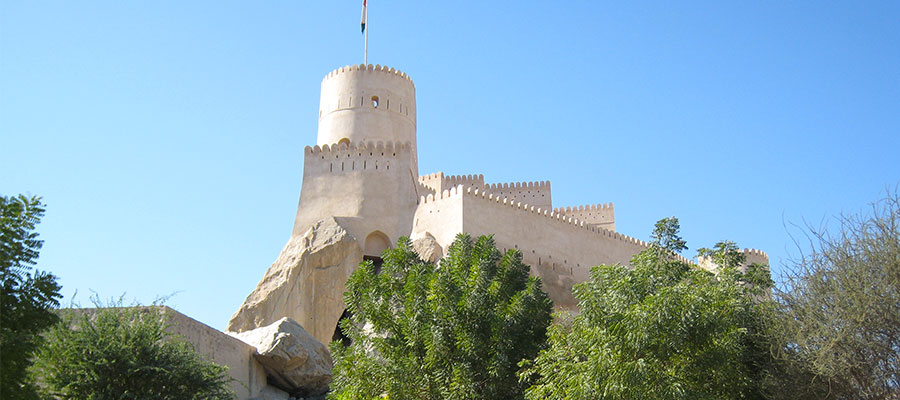
Prehistory
During the Bronze Age there were intense trades of copper, precious metals, incense, spices, perfumes, ivory and horses with the Indo Valley, Mesopotamia and Iran.
Thanks to this flourishing economy, from the 3rd century BC then the south of the country set up with ports and cities.
Islamic period
In 629 a.C. Oman embraces the Islamic religion and the moderate Ibadi current, which guarantees peaceful coexistence with neighbouring countries.
Two distinct cultures are defined: coastal, secular and subject to the authority of the sultan, and that of the interior, more conservative and governed by the imam.
Portuguese colonization
In 1570 the Portuguese reached the Persian Gulf to seize the exclusive on spice trades from Asia to Europe. The Portuguese control Muscat and the coast of Oman for 143 years but they cannot go inside the country.
The Ya’Ruba dynasty
In 1624 a new imam of the Ya’Ruba tribe was elected, who reconquers Muscat and hunts the Portuguese: the modern history of Oman begins.
The dynasty expanded into numerous Portuguese colonies overlooking the Indian Ocean. Following civil wars between the two major tribal groups, the Persians took power in the eighteenth century until, in 1737, a revolt led by Ahmed ibn Sai Al Said expelled them permanently from the country.
Ahmed is named Sultan and initiates the Al-Bu Said dynasty, still head of the Sultanate.
20th century
The government of the Al-Bu Said dynasty is well established in Muscat but the interior of the country recognizes its own leader in the Imam: a situation that causes continuous struggles between the tribe and the central power.
The regions of the interior remain autonomous until 1954, when the Imam and the tribal chiefs try to create an independent state. The uprising is suppressed with the help of the British and the country is unified in 1959. On July 23, 1970 Qaboos Ibn Said, son of the Sultan, took power supported by the British and, again with their help and that of Iran, suppressed the Dhofar rebellion in 1976.
The Sultan begins the period of the Renaissance, the modernization of Oman, with the creation of a council of ministers, infrastructures and a foreign policy aimed at collaboration. The Sultanate of Oman is one of the founding countries of the Gulf Cooperation Council (GCC), established to promote economic, political and military cooperation among the Gulf countries.
Since 2000 the Sultanate is part of the WTO, according to the policy of liberalizing the markets and consolidating the position of Oman in the global economy.




